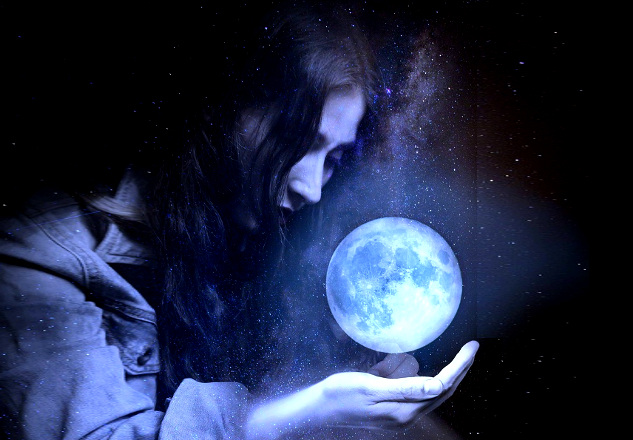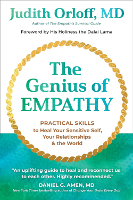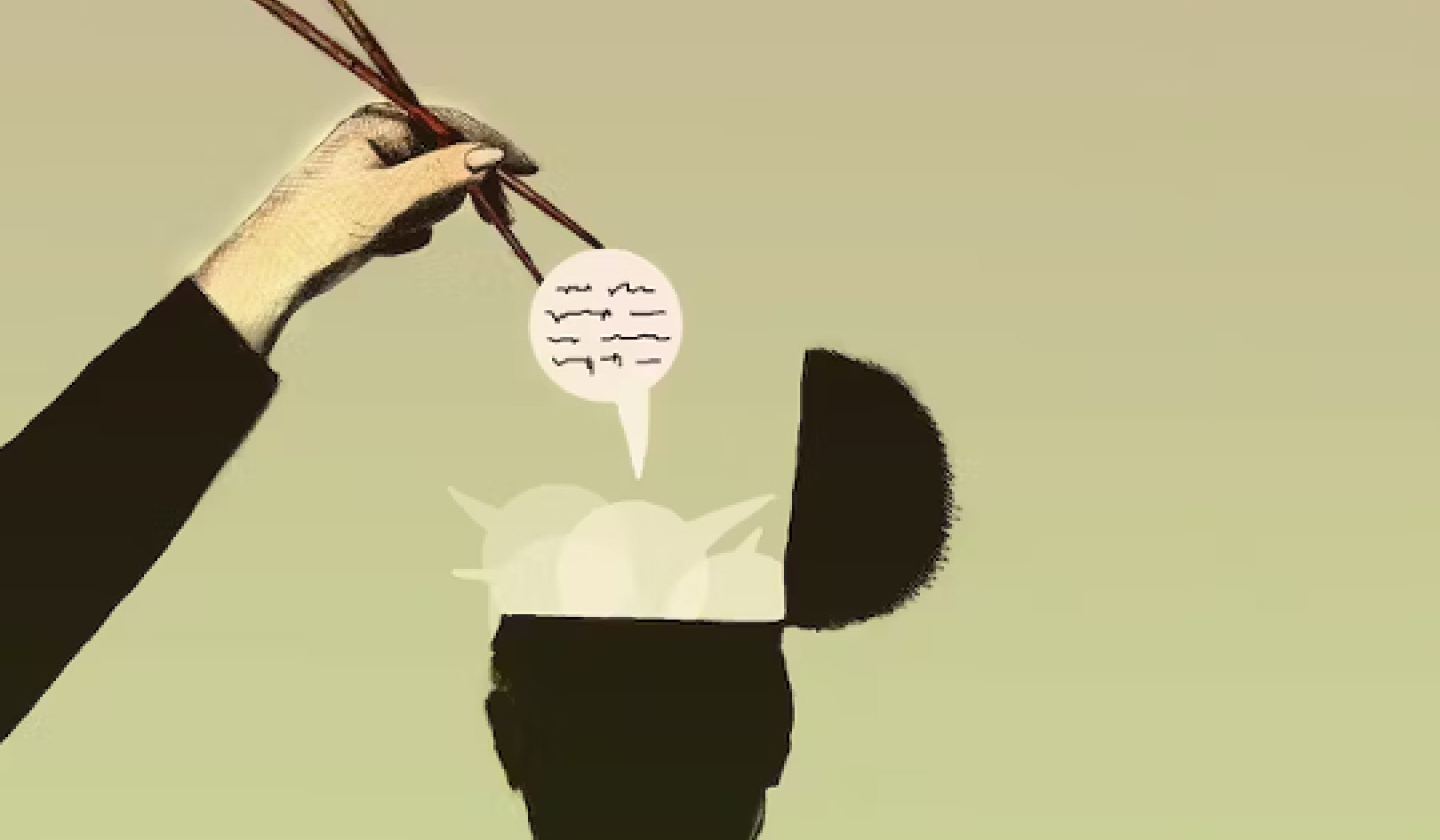
Bild von danielaceronmarin10 für Pixabay
We are living in wild, sacred times.
In this era of polarization, division, addiction, and scarcity, we are more isolated and lonely than ever. It all can rightfully seem like “too much,” and it is—at least, for your logical mind. That’s where the genius of empathy comes in. It gives you a wiser, more loving inner resource to guide you and let you view difficulties with more empathic, discerning eyes.
It’s never too late to tip the scales toward compassion and goodness. A lack of empathy has helped get us into this personal and global predicament. Reclaiming it will help get us out. This is your chance to shine and to see crises as both danger and opportunity, as the Chinese word for crises suggests. A key to thriving and surviving in these times is empathy.
The Scope of Empathy
The scope of empathy goes light-years beyond being a truly “nice thing to do” and how we typically relate to each other. Empathy is a form of emotional intelligence that you can learn and develop. It’s a daily healing practice with specific skills that will illuminate every aspect of your life.
Incorporate empathy into as many situations as possible (your ego permitting!) rather than leaving its role vague or unintentional. Encompass a fierce, proactive, even radical way of being caring toward yourself, others, and the world, no matter the situation you are facing. Author Maya Angelou got it right when she affirmed, “People may forget what you say . . . but they will never forget how you made them feel.”
Empathie kultivieren
Cultivating empathy is not about being bland or merely socially correct. Rather, it’s a kind of peaceful-warrior training. It entails giving and caring with intention. You can be both strong and loving, neither a pushover nor someone who is rigid.
Empathy may not be exactly what you think it is. Yes, it’s about the tenderness of sharing others’ joy and sorrow. Yes, it lets you sense someone’s needs so you can help them. But it also is being understanding with those you may not even like and—perhaps much harder—with yourself. As a psychiatrist I know that it is often easier to help others than ourselves.
Empathy's Power
Empathy is medicine for your mind, body, and soul. It is an alive healing energy. It provides a missing element that can calm your nervous system as well as bring harmony and ease to all areas of your life.
Empathy is also a state of openheartedness and warmth that helps you reach for the most admirable part of human nature and the kindness within—while also saying no to bad behavior. It allows you to show respect for others, which sometimes means simply hearing them out or letting them finish a sentence. Plus, it includes spiritual empathy, which connects you with the cosmic forces of love and the great mystery of the universe.
A secret to tapping empathy’s power
is to use the wisdom of both your heart and mind
to manifest greater healing.
As part of cultivating empathy, you must release the need to always be right, which is a roadblock to your heart. You do this by recognizing empathy’s inner opponents of fear, pride, and ego so you can tame them. Then you can relax a little and struggle less.
People love hearing, “You know, you might be right,” or “I see what you’re saying.” Acknowledging this is very different from people-pleasing or being untrue to your values. Here, you are consciously choosing to be flexible and affirm someone else’s point of view rather than quibbling about minor points or opposing opinions.
It’s been said that the highest form of knowledge is empathy because it requires us to suspend our egos and live in another’s world. I’m not suggesting that you get rid of your ego. It has strengths too. But, what it wants isn’t always best for your well-being. Empathy can intervene to create a more positive scenario. Don’t let your ego sabotage your heart because it’s too stubborn, hurt, or self-righteous to release unproductive behaviors.
Empathy Lightens Your Load
Life has challenges. There are many things out there to disturb you. Everyday occurrences such as dealing with a snarky friend, a stressed-out spouse, or rude coworkers may leave you feeling frustrated and tired. Perhaps you’ve lost your job with no new one in sight. Or you are experiencing depression, anxiety, or physical illness. Maybe the usual methods you’ve used to feel better aren’t working, or they’ve never fully worked. That’s where empathy is the right teacher at the right time.
The genius of empathy is that it allows you to attune to another’s wavelength and resonate with where they are at. It’s similar to tuning a musical instrument to its purest tone, frequency, and pitch. As a spiritual practice, attuning in this way also connects you more closely to your divine source so you can align with its infinite lovingkindness.
Like many of my patients, you might understandably ask, “Why do I want to have empathy for hurtful people or for those who make questionable or destructive choices? Basically, because it helps free you from any harmful connection with them so you don’t nurse a grudge. Carrying around a load of resentments doesn’t promote healing.
The type of empathy I’m suggesting lightens your load. Something positive happens when you can show even the slightest empathy for the emotional deficiencies (not the inexcusable behavior) of someone who hurt you. You become freer by releasing your judgments and resentments, even when you are right. Certain people have had so many damaging experiences that “doing their best” for others or themselves may be extremely limited. Still, you don’t want to keep them in your head. There are better, more fun thoughts that you can be having.
Listening to empathy can take you to places you’ve never been to before or even knew you wanted to go. You’re moving toward a magical changing point that has been called the great divide. In geography, this is one of a few locations on earth where rivers change directions on a mountaintop such as the Continental Divide in the Rockies.
This ability to reverse or change course has a spiritual counterpoint within you. No matter how far you have fallen or how alone you feel, practicing empathy can recalibrate your path toward healthier ways of behaving and perceiving the world.
Healthy Empathy
Healthy empathy is not about giving endless love to everyone you meet. It involves discernment, checking in with your intuition and energy level, and self-protection. Empathy only becomes problematic if you don’t set boundaries, practice self-care, or set limits. Without these techniques, there are no guardrails to hold on to or limitations to keep in mind, and you risk setting yourself up for burnout and empathy fatigue where you have nothing left to give to others or yourself.
As a result, you may conclude that empathizing hurts too much, and it’s better to stay shut down or numb to protect yourself. However, the impossible price you pay for this choice is to be stuck in your head, living with a closed heart—a fate that is unacceptable to me.
Honoring Your True Needs
On your journey of empathy, it’s vital to create a life that is in synch with your true needs. For me, this means taking “the road less traveled.” I’ve always been the “outsider” who loves solitude, shies away from parties, and often prefers the company of the ocean or a tree to most people. My whole life, I’ve talked to the flowers, to the birds, and to the moon. As a child I felt like an alien who didn’t belong here. Now, I adore my sensitivities and wouldn’t want it any other way.
Whatever your gifts are, releasing shame about feeling different is crucial. I urge you to discard the notion of who others told you to be. Then you can become 100 percent yourself in your views, choices, and sensibilities. Even if you don’t know where to start, follow my lead. I’m honored to guide you to that freedom.
I applaud all the freethinkers, creatives, loners, and questioners of the norm who dare to be true to themselves. I salute all the shy, socially awkward kids who somehow survived the adolescent trials of high school to carve their own paths. I commend everyone who has followed their true extroverted nature and stuck to their vision even when others might have told them to “tone it down” or that their ideas were “too big or unrealistic.”
It’s liberating to release the idea
that something is wrong with you
for being different.
Empathy: A Coming Together of Heart and Mind
What’s wonderful about empathy is that it can benefit all kinds of people: those who prefer being insiders or outsiders, empaths or nonempaths, conventional or nonconventional, and anyone in between. Perhaps you don’t identify with any category, and that’s fine. Empathy can improve all our lives and relationships.
Some of my patients are outgoing movers and shakers in the world who use empathy in the workplace and their personal lives. Unlike me, they don’t require lots of alone time, and they flourish being around large groups of people. There are many ways to embody empathy that can uniquely suit each individual.
Feeling empathy is the joining point of all bridges going to all places—a coming together of heart and mind. When I am experiencing empathy, I want to breathe fully, I want to be still and let my heart be filled with empathy’s grace and warmth. This is the language of my heart, but we all may experience empathy differently.
There are compelling intellectual, emotional, and spiritual reasons to develop your empathy, including the prospect of healing parts of you that may have been in pain longer than you might like to admit. Maybe it’s time to release even the justified grudge festering in your gut so you can be free of that burden. Perhaps you can start gauging your success each day by the number of heartfelt connections you make rather than anything material. Or you can start focusing on a future of wonder rather your scars from love’s wounds. You deserve another chance and a fresh start.
The world is full of good arguments about why we can’t find empathy and peace in our own lives or in the tumultuous world. Consider all the people there are with empathy deficient disorders such as rampant narcissism and bullying. You might ask, “With these deterrents, how can we possibly love each other or get along?” The answer comes from your heart, not from your head or from all the logical evidence you can accumulate about human nature’s deficiencies. Empathy offers a path out of misunderstanding and hate. This is my simple focus. To find empathy, a starting place is for your heart to connect with others who value having an open heart too.
Empathy will keep us all bound together; not war-like but tolerant and curious and embracing both our similarities and our differences. That’s why I’m so drawn to it, despite all the “logical” reasons not to be. Year after year, I keep letting empathy expand my practice of medicine, the way I listen to my patients’ needs, and my own life.
Empathy is the best of what it means to be human. May actualizing this be our purpose—to heal and to love in the midst of adversity and embody a greater optimism. Once you discover that grace, it will never leave you as long as your heart keeps searching for it.
Copyright 2024. Alle Rechte vorbehalten.
Angepasst mit Genehmigung von Das Genie der Empathie
(Herausgeber: Sounds True) Judith Orloff, MD.
Artikel Quelle:
BUCH: Das Genie der Empathie
Das Genie der Empathie: Praktische Fähigkeiten zur Heilung Ihres sensiblen Selbst, Ihrer Beziehungen und der Welt
von Judith Orloff.
 Das Genie der Empathie bietet praktische, handlungsorientierte Anleitungen, um unseren Geist und unser Herz zu verbinden und unser authentischstes, wildestes und mitfühlendstes Selbst zu verkörpern. „Empathie zu kultivieren ist eine Art friedliches Kriegertraining“, sagt Dr. Orloff. „Du wirst lernen, sowohl stark als auch liebevoll zu sein, weder ein Schwächling noch starr. Wo auch immer Sie sich in Ihrem Leben befinden, dieses Buch kann Sie dort treffen und Sie weiterbringen.“
Das Genie der Empathie bietet praktische, handlungsorientierte Anleitungen, um unseren Geist und unser Herz zu verbinden und unser authentischstes, wildestes und mitfühlendstes Selbst zu verkörpern. „Empathie zu kultivieren ist eine Art friedliches Kriegertraining“, sagt Dr. Orloff. „Du wirst lernen, sowohl stark als auch liebevoll zu sein, weder ein Schwächling noch starr. Wo auch immer Sie sich in Ihrem Leben befinden, dieses Buch kann Sie dort treffen und Sie weiterbringen.“
Jedes Kapitel ist gefüllt mit Dr. Orloffs wertvollsten Erkenntnissen und Werkzeugen für ein Leben mit größerer Verbundenheit, Sicherheit und Selbstbestimmung, während Ihre empathischen Fähigkeiten aufblühen.
Für weitere Informationen und / oder um dieses Buch zu bestellen, bitte hier klicken. Auch als Kindle Edition erhältlich.
Über den Autor
 Judith Orloff, MD, ist eine Bestsellerautorin der New York Times und Autorin des Buches Das Genie der Empathie: Praktische Fähigkeiten, um sich selbst, Ihre Beziehungen und die Welt zu heilen (mit Vorwort des Dalai Lama). Sie hat auch geschrieben Der Überlebensleitfaden des Empathen und Als Empath aufblühen, das Tools zur täglichen Selbstpflege für sensible Menschen bietet. Sie verbindet die Perlen der Schulmedizin mit modernstem Wissen über Intuition, Empathie, Energiemedizin und Spiritualität.
Judith Orloff, MD, ist eine Bestsellerautorin der New York Times und Autorin des Buches Das Genie der Empathie: Praktische Fähigkeiten, um sich selbst, Ihre Beziehungen und die Welt zu heilen (mit Vorwort des Dalai Lama). Sie hat auch geschrieben Der Überlebensleitfaden des Empathen und Als Empath aufblühen, das Tools zur täglichen Selbstpflege für sensible Menschen bietet. Sie verbindet die Perlen der Schulmedizin mit modernstem Wissen über Intuition, Empathie, Energiemedizin und Spiritualität.
Dr. Orloff ist in ihrer Privatpraxis und online international auf die Behandlung von Empathen und hochsensiblen Menschen spezialisiert. Ihre Arbeiten wurden in der Today Show, CNN, dem Oprah Magazine, der New York Times und USA Today vorgestellt. Dr. Orloff hat bei Google-LA, TEDx US und TEDx Asia gesprochen.
Weitere Informationen zu Dr. Orloffs Empathie-Trainingsprogrammen für Unternehmen, dem Online-Kurs „The Empath's Survival Guide“ und dem Vortragsplan unter DrJudithOrloff.com
Mehr Bücher dieses Autors





























